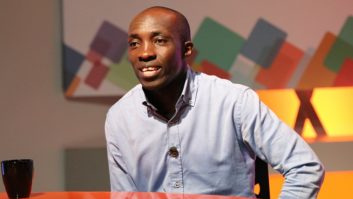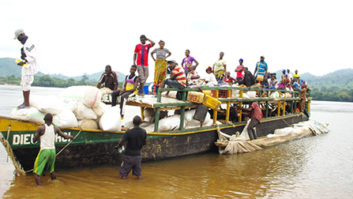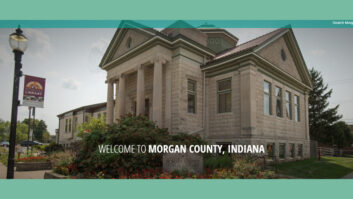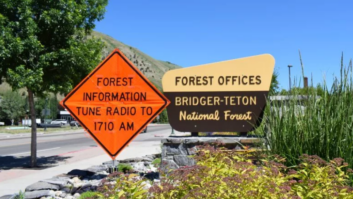
As the world continues to fight COVID-19, community radio stations have played a critical role in tackling the spread of the disease in Africa. Community radio stations in the continent are spreading life-saving COVID-19 information to vulnerable communities in urban and rural areas — their mission at this moment is focused on disseminating information to prevent the pandemic.
Getting information on ways to stop the spread of coronavirus in vulnerable communities can be challenging and difficult. But the radio stations have built up trust within communities and listeners appreciate and act on the information that has been broadcast.
Koch FM, Kenya’s first licensed community radio station — established in 2006 by the youth of Korogocho slum, the fourth-largest informal settlement in the country’s capital Nairobi — is leading the way in the fight against COVID-19. The community radio station has developed efforts to create awareness on COVID-19, and to reach women, the elderly, adolescent, youth, children, persons with disability and other marginalized and vulnerable groups.
Over the years, community radio has played a critical role in informing people about matters that affect their lives and has been useful during disasters and emergencies. In this time of crisis, Koch FM is broadcasting COVID-19-related programs daily. They are broadcasting public health advice and songs that advise people on preventive measures to reduce infections within the community.
[Read: How Community Radio Is Helping India]
The idea of community media is to empower marginalized people with no access to mainstream media. Community radios like Koch FM are run by and serve the interest of the community — they amplify voices of marginalized communities, serve as a mouthpiece to the marginalized and provide essential information.
In the Mukuru slum in Nairobi, Kenya, Ruben FM (99.9 MHz), a community radio station, is sensitizing the community on the need to stay at home, and stay safe, and that COVID-19 can affect them too. They are encouraging community members to ensure proper sanitation. The radio station has been broadcasting news and programs on the COVID-19 pandemic.
In keeping with the mission of community radio, Ruben FM is providing information, education and knowledge that cater to the needs of the vulnerable community. It is evident that the station has been able to function as part of the community, and more effectively because it is physically situated there. This makes it easy for community members to access and contact the facility — it is accessible in terms of ownership, decision-making and program output.
In Mozambique, community stations have been taking on the coronavirus and continue to broadcast and provide essential information to keep COVID-19 at bay. Broadcasters at Radio Gorongosa and Radio Dondo, for instance, are sending out prevention messages about COVID-19 to communities in the form of advertising spots, radio debates, interviews, reports and programs.
In Ethiopia, Argoba Community Radio 98.6 FM, located on the border of Amhara and Afar regional states and broadcasting 56 hours per week in Amharic, Argoba and Afar languages, is contributing to the fight against an “infodemic” that is prevalent in social media channels. At a time when there is a mass spread of wrong information, the station has done a fantastic job to break the chain of the virus and fake news.
Community radio provides marginalized communities with access to a voice — to express their concerns, interests and needs, promote and protect their cultures, traditions and heritages and determine their own development.
At this point, and during the COVID-19 crisis, the role of community radio stations is important in providing vulnerable sections of the population with credible information on how they can protect themselves against coronavirus. It is important to embrace community radios to check and halt the deadly virus and fight COVID-19.
The author is a public policy analyst and writer who has served as a consultant with the United Nations and the World Bank. An alumnus of Duke University, he has authored and co-authored numerous books, including “Conversations About the Youth in Kenya.” Obonyo is a TEDx fellow and has won various awards.







